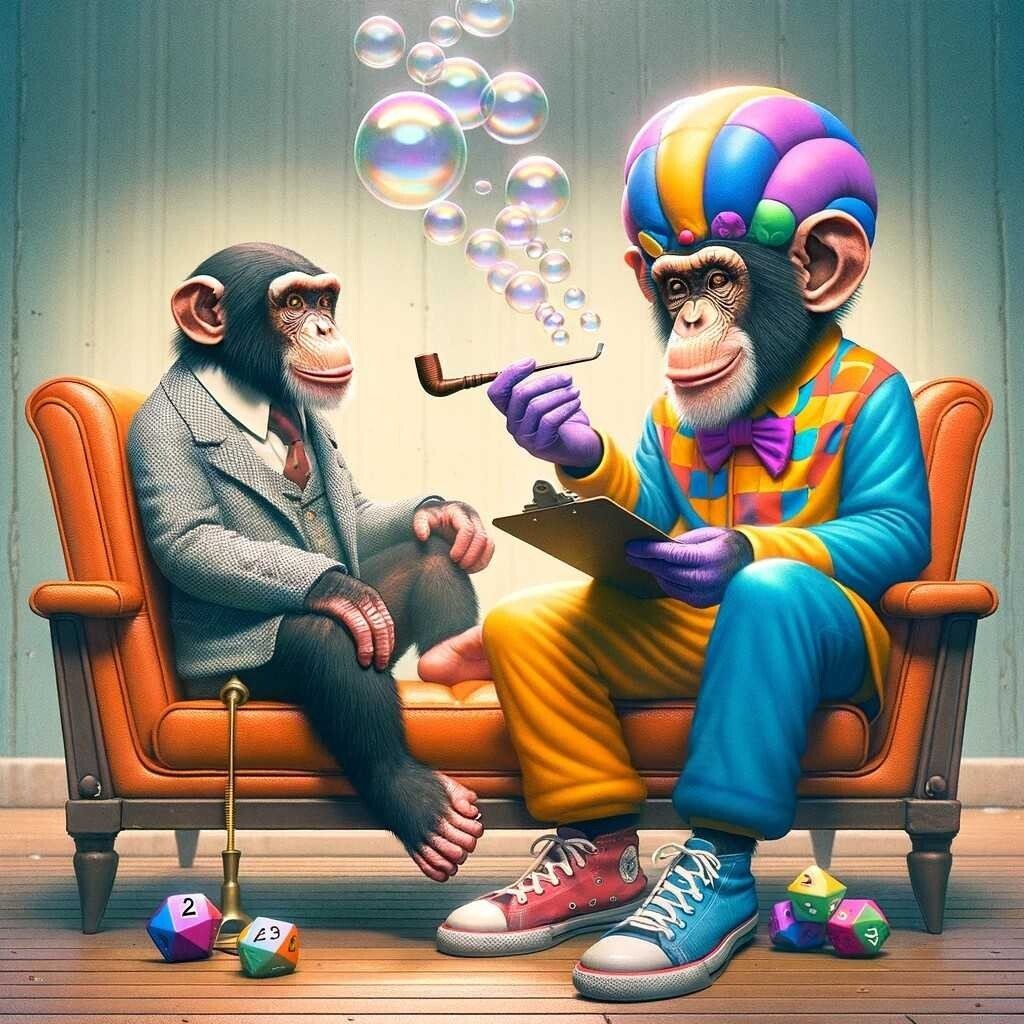Well just in case this ends up being a solution to some mystery I’ve not come across, here’s a genuine (albeit seemingly pointless) finding from a research project I did a while back:
When saltwater is poured into the soil around the roots of a tomato plant, the plant’s internal electrochemical response oscillates with a 0.1hz frequency.
I’m not sure what mystery that will solve but now nobody can accuse me of not reporting/recording it!
Thats so much cooler than my last work, which can be summed up as “when someone said you can make [substance] via [cheap process] instead of [expensive process] they were fucking lying”.
Unspoken second title: “and all you reviewers fucking suck!”
It would have been a cool paper, if my original goal was anything remotely similar. I mostly wrote it out of spite.
So this is related to hydration in the plants. I read this paper about tomato plants being stressed and emitting ultrasonic chirps
Ooh, interesting. That’s a different angle from what we were working on but a similar idea of being able to understand what stresses plants are under.
Here’s an article talking about the project I contributed to: https://www.engineering.com/story/xzezv
So glad I can’t hear my poor potplants.
They said “Whaaat?”
Thank you. I love you.
We know by now that plants talk with each other. You could measure the effect of this on the plant and surrounding plants. Check if the effect is beneficial, like better water retention, growth or taste etc. If any of this is true, install a speaker on your tomatoes field and play some 0.1hz jazz
I’m hearing that you solved how to get the robot bee fencing problem solved already?
Lemon helping with scurvy was reported and recorded but then forgotten. I think losing knowledge is more likely than unreported knowledge, especially regarding lifes great mysteries.
Especially so for anything discovered more than a couple hundred years ago when most people couldn’t write, let alone have their findings instantly available to the world via the internet
Or now, when it can be buried in misinformation or the sheer messy size of the Internet.
I believe that was the origin of ‘limey’ becoming a nickname for when English were in submarines for large periods of time.
Very likely. This is one of the problems with our global social system.
Keeping such a large proportion of people in poverty and lacking access to education basically guarantees that we’re missing out on more than half our Einsteins.
Antivaxxers, flat earthers and religious people all think they are einstein too.
Not really sure what point you’re making here, could you explain a bit further?
I have made a truly marvellous discovery, which this post is too short to contain.
Oh I think I know which discovery you’re talking about. I’m out at the moment but I’ll post it once I’m home.
Go back even further - there were some very clever people people around in ancient times. Example: the Antikythera device. https://en.m.wikipedia.org/wiki/Antikythera_mechanism
Who knows what they might have come up with? So much knowledge was lost to fire and flood and warfare over the centuries.
Stone henge. Pyramids. Etc.
Didn’t the Romans accomplish something similar when they built the temple of Jupiter?
Those dudes were truly onto something.
I think it’s closer to accurate that life doesn’t have a whole lot of “great mysteries”, not counting frontiers beyond which we simply can’t detect.
Instead there’s just so much to learn, that it’s impractical for any individual to learn even a modest fraction of it. But, there’s usually some philosopher, or niche branch of medicine, or sect of monks somewhere or behavioral biologist or whatever that has figured out the answer to that particular question, and just nobody really bothers to ask them very often. And they only might know that one, just because they specialized in it. They won’t know any of the others, just like everyone else.
Like, what is love could be a common one. But would you really say nobody knows, or just nobody starts knowing, but it is possible to figure it out, and rarely, some people do?
*Baby don’t hurt me,
Don’t hurt me, no more*
Don’t taze me
‘What is love?’ is a semantic question, not a scientific one. We know what causes, for example, sexual attraction, but is that what people mean when they say ‘love’?
…one Thursday, nearly two thousand years after one man had been nailed to a tree for saying how great it would be to be nice to people for a change, a girl sitting on her own in a small café in Rickmansworth suddenly realized what it was that had been going wrong all this time, and she finally knew how the world could be made a good and happy place. This time it was right, it would work, and no one would have to get nailed to anything.
Sadly, however, before she could get to a phone to tell anyone about it, a terrible, stupid catastrophe occurred, and the idea was lost forever.
The Hitch-Hiker’s Guide to the Galaxy
Some of these things probably were recorded, then promptly lost or provided no context. Ramanujan and his mathematical equations we are still trying to parce out is one great example of this.
All the math is there, the context is not.
Thanks for that name-check, what an extraordinary man he was!
‘Ramanujan initially developed his own mathematical research in isolation. According to Hans Eysenck, “he tried to interest the leading professional mathematicians in his work, but failed for the most part. What he had to show them was too novel, too unfamiliar, and additionally presented in unusual ways; they could not be bothered”.’
Ramanujan could easily have lived and died without recognition of his abilities.
It’s an amazing story and he is one of the greatest and least known (by people not in related fields) mathematicians. A fantastic rabbit hole to dive into.
I guess if you’re talking math, there’s Fermat’s Last Theorem whose proof (assuming it was legit) was lost for centuries.
I’m willing to believe they thought, “Wow! This is new! Oh, probably everyone else already knew it, it’s just new to me. I’m kinda embarrassed it took me so long to figure it out. I’ll just keep my previous ignorance to myself, by avoiding the whole topic.”
Truly unfortunate
100% Has happened many times. Often those things are later re-discovered. But who knows?
How many reporters around the world have had a car spontaneously explode, or suffered sudden-onset jumpeez near a window?
How many scientists and researchers have had significant breakthroughs or discoveries about hazards of waste or energy efficiency, only for their work to suddenly be labeled falsified and personal reputations dragged through the mud?
Oh definitely! And not only cause humankind tend to forget something. We are a really western, at best on top asian and arabic region focused society. So we wouldn’t know if a guy in South America figured out the earth is round or saw gravitation like Newtown.
Edit: and if you wanna read about how much Christianity destroyed knowledge everywhere they went. I would say chances are 99,9999% someone got erased from history
Not only this, but women have been suppressed for most of history and not allowed to participate or taken seriously. This means even in those societies where we were paying attention, we were listening to at best only the 50% of (generally white) men in that fraction of the world.
Different field than the post, but Mozart’s sister comes to mind. She was also a prodigy, was toured around with Wolfgang and got top billings as a kid. But as soon as she was “marriagable age” she was not permitted anymore to pursue any career in music. She had to marry, have kids, and was a piano teacher the rest of her life. What incredible musical compositions could we have had from her, if the patriarchy had allowed?
Oh absolutely! And I really don’t know the names and all, but I heard a lot of great scientists and authors just stole the work of their wives and never really accomplished anything other than stealing (which was totally fine during those times). I can’t imagine how much rage and anger those women felt. So helpless and in the best cases belittled…
I don’t doubt it. It’s a bit like natural selection. A good idea has better odds of taking hold and becoming a part of the next generation’s knowledge base, but there are no guarantees. There are all sorts of circumstances that can affect whether this actually happens, and sometimes it’s just down to dumb luck.
It doesn’t seem very unlikely actually, plenty of things were conceptualized by someone long before they were coined/popularized. Problem is most ideas we can trace to someone were typically coined by people already reputed to be physicists or philosophers, the traction of ideas having always been anti-layman. There was some random old bishop from the late Roman period for example who spoke about making a United Nations, but no public mind was saying anything about it, so he got a reaction similar to one caveman talking about inventing the flashlight to curb the dangers of fire before the other one asks “what’s fire?”
An interesting question. There’s almost certainly someone, somewhere in the last 2000 years that has acquired some profound knowledge, only to not share it for whatever reason. I think as we progress more through the ages, the likelihood of this being some kind of breakthrough about the physical world keeps going down, if we’re talking one person discoveries. As we get more complicated problems, we require more specific and expensive equipment to gather data.
I think the realm this is most likely to appear in today’s world is in the realm of mental health, psychology, consciousness, etc. Things that are, on some level, very much personal, but there’s almost certainly some profound bit that can be applied to the world at large.










